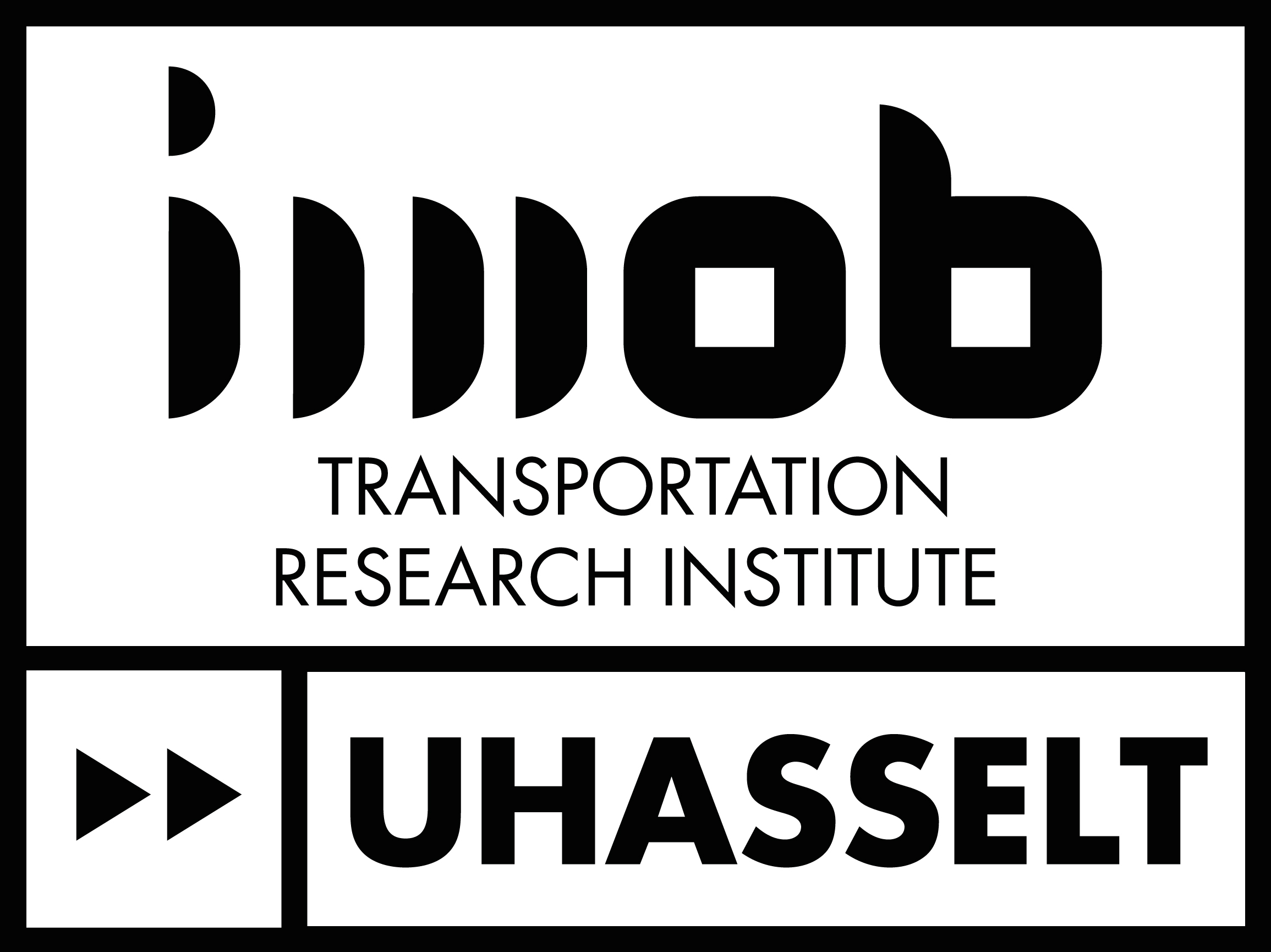VITRONIC research chair: Gamification to reduce traffic violations
How can we reduce the number of traffic violations and accidents? That's what the Transportation Research Institute (IMOB) has been looking for innovative solutions to for years. With the launch of the Vitronic Research Chair on 15 May, they are taking it one step further. By combining gamification strategies with advanced AI technologies, IMOB aims to improve both the enforcement of traffic rules, and driver behaviour.



Changing driver behaviour
Traffic violations are a major cause of road accidents and congestion, and result in significant economic and human losses every year. "Traditional enforcement methods, such as fines and points on driving licences, unfortunately often do not lead to long-term behavioural changes in drivers. With this chair, we want to devise solutions that improve their driving behaviour sustainably," Dr Youssef El Hansali says. The VITRONIC CEO got to know the Transportation Research Institute's research very closely. He obtained his PhD at IMOB, later supervised many students in their research assignments, and today he is a part-time visiting professor here.
"Dr Youssef El Hansali and IMOB are partners with the same mission. With the VITRONIC Research Chair, together we want to develop new solutions to improve road safety, worldwide," underlines Prof Dr Geert Wets, director of IMOB. "VITRONIC has a lot of expertise in innovative traffic enforcement technology, and IMOB skims high peaks with its research in road safety, gamification and behavioural change. If we combine our expertise, we can create impact together."
Exploring new technological boundaries
With the chair, IMOB is introducing a new concept that combines technological and psychological strategies to tackle the problem more effectively. Prof Dr Ansar Yasar, who is coordinating the research, explains: "We will explore two main technological frontiers: automated identification of traffic violations using AI and personalised coaching using gamification principles. We want to develop an AI system capable of detecting traffic violations in real-time, and then link this system to a personalised gamification-based coaching system that effectively helps drivers modify their behaviour. We hope that the synergy between these technologies will lead to a more proactive and engaging approach to road safety."
Worldwide applicability
In the short term, this AI-driven system will detect traffic violations more accurately and faster, as well as trigger behavioural changes in drivers as they learn from the personalised feedback. The developed framework will be scalable and adaptable to different cultural and urban contexts. "This has immense potential to change the way traffic laws are enforced worldwide," underlines chair Prof Dr Ansar Yasar.
About the Transportation Research Institute (IMOB)
The Transportation Research Institute (IMOB) is an independent, scientific research institute affiliated to Hasselt University. The institute is active within the fields of transportation and traffic safety, focusing on travel behaviour. They do this by studying the interaction between behaviour, infrastructure and technology. That interaction is complex, but the resulting insights allow them to predict mobility flows and make traffic safer. In carrying out these activities, of course, they constantly come into contact with other disciplines such as health, climate, tourism ... allowing them to realise impact on society, both socially and economically.
The School of Transportation Sciences also offers both a Dutch-language Ba/Ma programme in Transportation Sciences and an international Master of Transportation Sciences (also via distance learning).
About VITRONIC Machine Vision Middle East LLC
Dr Ing Youssef El Hansali, who holds a PhD from UHasselt, founded VITRONIC Machine Vision Middle East LLC in 2009 as a sole proprietorship to cover the Middle East and Africa region. Since then, the company, with more than 190 employees, grew to become the largest branch of the VITRONIC Group and employs more than 190 co-workers. Based in the heart of Dubai, the company provides innovative and customised solutions for traffic technology, logistics automation and industrial automation.
More info about the VITRONIC research chair
Contact: Prof. Dr ir. Ansar-Ul-Haque Yasar (chair holder)
- E-mail: ansar.yasar@uhasselt.be
- Telefoon: +32 11 26 91 38



























